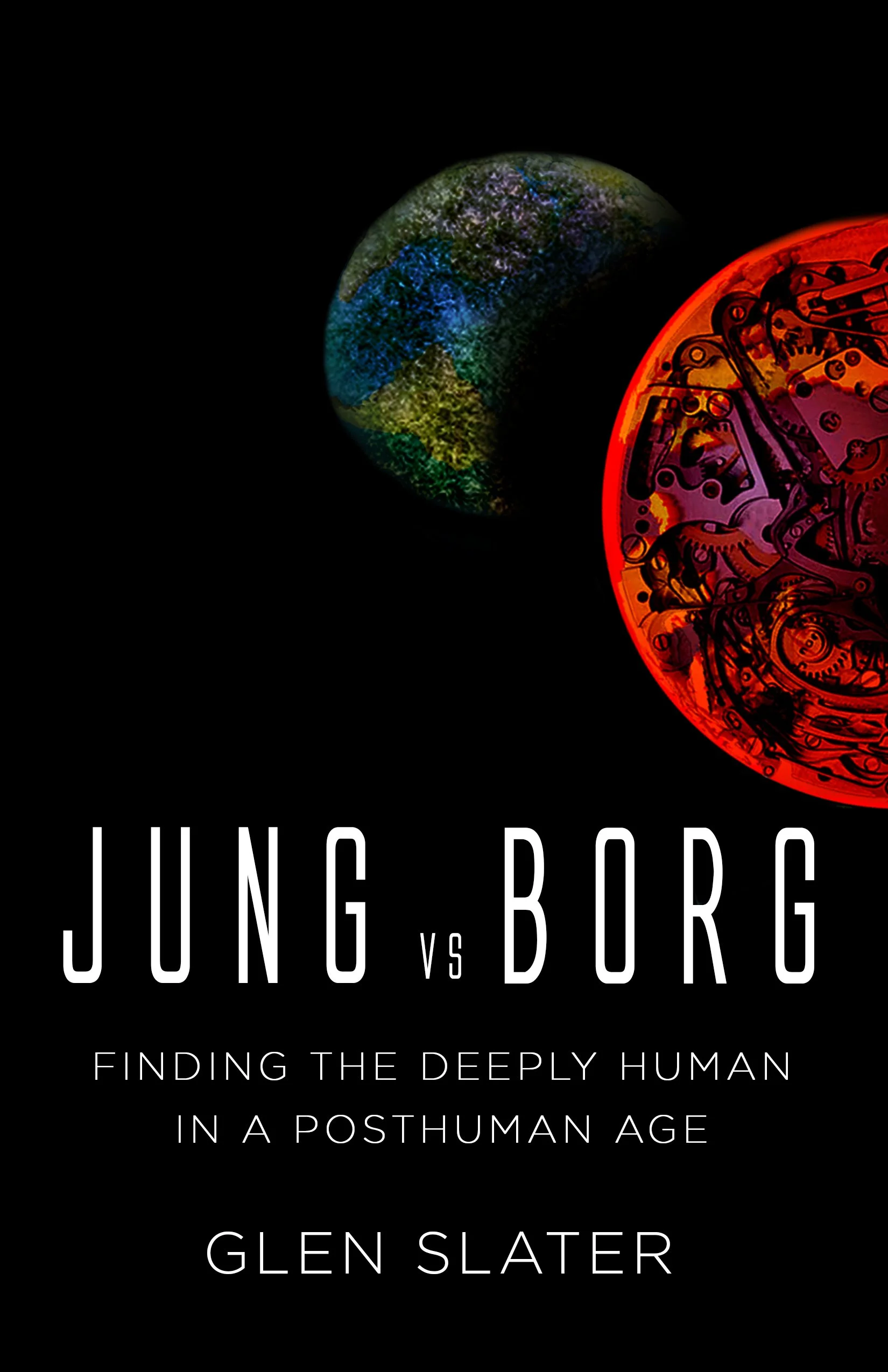Teacher
Writer
Consultant
“Many years ago C. G. Jung warned us that without an “imagination for evil” we modern human beings were in danger of becoming instruments of the very evil we abhor. Glen Slater’s brilliant and passionate analysis of online culture and its insidious seductions of hyperreality, virtual companions, and cyber presences—all run by artificial intelligence—opens up that imagination in ways that are both terrifying and illuminating. To become conscious of these dehumanizing forces in our midst and how to combat their dissociative effects on the inner life of the soul should be a major focus of all depth psychological training in the 21st century. I cannot emphasize strongly enough the importance of this book.”
“Slater brilliantly argues that the future posthumanists are promoting will sever our ties with the deeply human basis of being. To head in this direction is to become psychically “numbed,” a state of minimal being that is already pervasive to the point of being normative. Numbing makes us incapable of being satisfied with the actuality of events. We take residence in left-hemisphere cortical processes, becoming half-brained and cyborg-like. To resist these cyborg prospects, Slater extracts from the psychology of C. G. Jung the most useful bits. An exploration of the natural richness of the psyche and its fabulous imaginative power comprise the natural antidote to a bleak future defined by posthumanism.”
Purchase online & at local bookstores
Facing this technologically-induced fragmentation of the human psyche presents a profound challenge. The way of the world is now mostly fused with the way of technology. A global technocracy supporting a mass migration into cyberspace transcends the power of any individual government or corporation. The technoscience at the core of this technocracy eyes a posthuman future, with the figure of the cyborg already visible on the horizon. A conspicuous image of our becoming, the cyborg essentializes the extrapolation of technocratic trends, making it a primary target for depth psychological analysis.
Although the bedrock of being is about to be deeply shaken, there is terrain to traverse before we hardwire our minds to computers and become fully biomechanical. Much depends on our capacity to remain conscious of the effect each stage of innovation has on the psyche and on the social and cultural changes that will follow. It is right here we may juxtapose the exploitation of the inner world and the preservation of its integrity, which is set out in the psychology of C. G. Jung. It is in Jung’s psychology we find the crux of a countercultural turn to the holistic character of the deeply human.
Winner of the 2025 International Association
of Jungian Studies Book Award
“Glen Slater bridges ecology, depth psychology, systems theory, and various post-Cartesian philosophies to explore how this civilizational cult (posthumanism) has effected ‘a widening divide between fabrication and authenticity . . .’ and what we can do to rewild the psyche and reclaim the soul.
. . . Lensing Jung’s legacy through the light of thinkers as varied as Hannah Arendt, William James, Yuval Harari, and Oliver Sacks, Slater goes on to explore and celebrate the countercultural movement in the margins of this techno-trance — ways of seeing and of being that, unlike posthumanism, refuse to exclude beauty, eros, and transcendence from the human story, a story told in the language of the soul, irreducible to data.”
In Jung vs. Borg Glen Slater argues the industrial disruption of the outer world is being followed by a post-industrial disruption of the inner world, resulting in a different order of existential crisis, making the collapse of global ecosystems look like a warm-up act. The main event, beginning with the psycho-social fragmentation of the digital age, appears to be the collapse of our ecology of mind. As he explores critical precursors of this phenomenon and shows how this crisis will accelerate through the attempt to merge human and machine, Slater demonstrates how the psychology of the unconscious, born in the shadow of the Industrial Revolution, can be deployed as a counter-measure.

